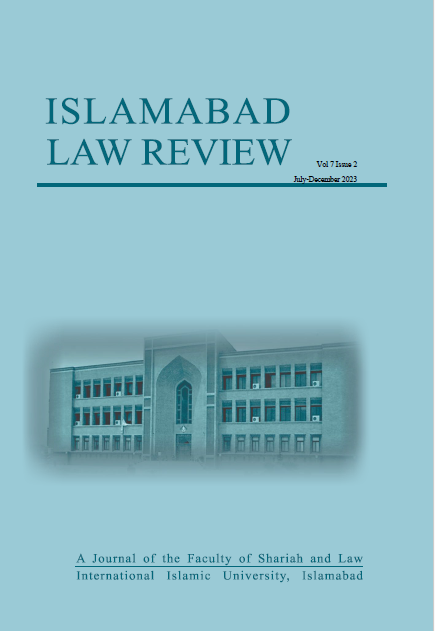Limitations for Domestic Jurisdiction of States in the Post-UN International Legal Order: An ICL Perspective
Abstract
Domestic jurisdiction or state sovereignty are the notions closely associated with the political and legal existence of state. In legal sense, domestic jurisdiction is referred to the state internal authority to legislate, adjudicate and execute the laws. On the contrary, sovereignty is used in a broader context covering both internal as well as external affairs of the state. Some scholar argues that the shift in the paradigm of public international law such as the contemporary regime on human rights law and international criminal law carries restrictive implications for domestic jurisdiction of states. In this context, this work evaluates the abstract notions of domestic jurisdiction and state sovereignty under the contemporary international law. It briefly analyzes the legal basis of sovereignty in historical context. What are limits of domestic jurisdiction under the post-UN international legal order is the question which this work tends to examine. The article mainly focuses on evaluation of the notion of domestic jurisdiction from the perspective of international criminal law especially the jurisdictional overlap between international organs and national courts. Lastly, it is concluded that the concept of domestic jurisdiction is not without limitations in the post-UN international legal order.


